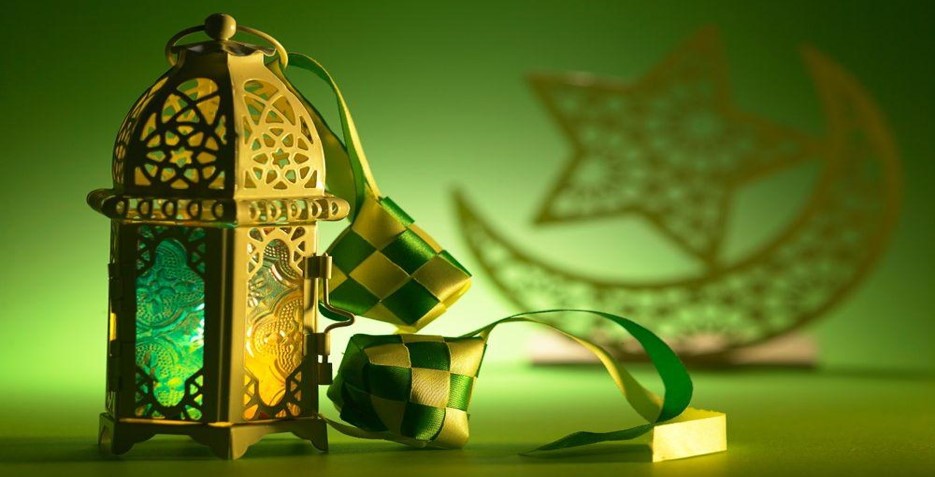Ramadan – for Muslims, the month long celebration which commemorates Allah, the Arabic name for God, giving the first verses of the Quran, the Muslim holy book, to the Prophet Muhammad (PBUH) in the year 610 A.D.
The date of Ramadan varies each year and is determined by the cycles of the moon. Ramadan is the ninth month of the lunar Islamic calendar and it officially begins the morning after the crescent moon is visible to the naked eye.
For the world’s 1.8 billion Muslims, the annual event represents a time to fast and devote a particular focus to prayer, purification and charitable acts. This year Ramadan starts on the evening of Saturday, April 2nd lasting 30 days and ending at sundown on Sunday, May 1. (Though the days can vary by one day)
The Arabic greeting is “Ramadan Mubarak,” which means “Happy Ramadan,” or “Have a blessed Ramadan.” Another is “Ramadan Kareem,” which means “Have a generous Ramadan.”
During the Fast of Ramadan strict restraints are placed on the daily lives of Muslims. They are not allowed to eat or drink during the daylight hours. Smoking and sexual relations are also forbidden during fasting. At the end of the day the fast is broken with prayer and a meal called the iftar. In the evening following the iftar it is customary for Muslims to go out visiting family and friends. The fast is resumed the next morning.
It is said that the Five Pillars of Islam are the framework of Islamic life. First – Shahada, A Muslim must have faith In Allah and believe that there is only one Allah and Muhammad is his messenger. Next-Salat- A Muslim has the duty to pray five times each day, which is considered to be adirect link between him and Allah. Third – Zakat, A Muslim must distribute alms and help the needy. Fourth, Sawan – A Muslim is responsible to keep the fast of Ramadan. Lastly Hajj, A Muslim is obligated to make a pilgrimage to Mecca in his lifetime.
The observance of Ramadan is very personal and individual and is a time for “sacrifice and renunciation as well as a period of reflection and spiritual growth. Fasting is a spiritual practice that makes you closer to God/Allah.
Fasting is more than remaining hungry and thirsty for the sake of Allah. Keeping a fast is an integral part of the Indian culture and tradition. It basically connotes willingly abstaining oneself from eating certain or any kind of food, drink or both.
Fasting is an exercise in self-restraint. It’s seen as a way to physically and spiritually detoxify by kicking impulses like morning coffee, smoking and midday snacking. In Ramadan people are more generous and give from their pockets and hearts to those less fortunate. There is an aura of love and compassion surrounding every individual as the self-centeredness is refocused to those around them. Materialism is about getting rather than giving.
The motivation should be centered on God/Allah and a relationship with Him, not on our body or our relationship to others. The word ‘Ramzan’ is Persian, against ‘Ramadan’ which has Arab roots. It comes from ‘ramad’, denoting an object intensely heated by the sun. Linguistic scholars say this holy month was named Ramadan because it “burns the sins of the faithful”.
Ramadan is a time to detach from worldly pleasures and focus on one’s prayers. The spiritual significance of fasting is being forgotten today as man is losing contact with his inner being.
Nevertheless the science of fasting, as preserved in the Vedas, Shastras and Quran, is a method of purification which can aid man in his mundane and spiritual life. Prophet Muhammad (PBUH), said: “When one of you is fasting, he should abstain from indecent acts and unnecessary talk, and if someone begins an obscene conversation or tries to pick an argument, he should simply tell him, ‘I am fasting.”
Fasting is a way to demonstrate to God/Allah and to ourselves that we are serious about our relationship with Him. At the same time, fasting without the right attitude does not touch the heart of God/Allah. There is no doubt that Ramadan allows all Muslims to gain Self Discipline, Concentrate on things that are most important in Life, worship Allah and become closer to Him, have a great change in their diet, and the most important is gain mindfulness.
Courtesy : Vinod Chandrashekhar Dixit

